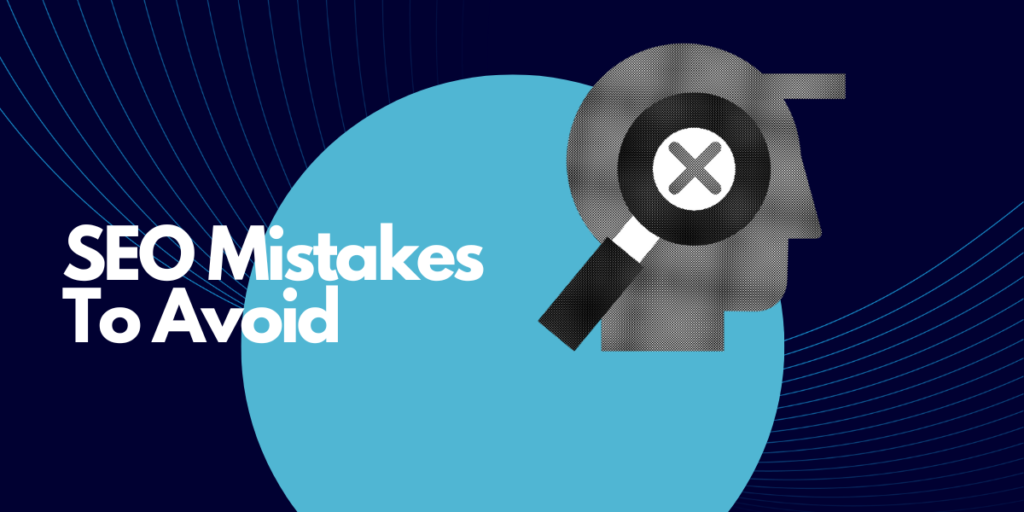Are you struggling to improve your website’s search engine rankings? If so, you’re not alone. Many website owners face common SEO problems that hinder their efforts to climb the ranks of search engine results pages (SERPs). In this blog post, we will discuss some of these issues and provide practical solutions to help you avoid them. By addressing these common pitfalls, you can enhance your SEO strategy and boost your chances of achieving better SERP rankings. Let’s dive in!
Lack of keyword research
One common SEO problem is not conducting thorough keyword research. Without understanding the keywords that your target audience is using to search for your products or services, it becomes difficult to optimize your website effectively. By neglecting this crucial step, you risk targeting the wrong keywords and missing out on valuable organic traffic.
Lack of keyword research can lead to missed opportunities for valuable organic traffic, as targeting the wrong keywords becomes a risk.
Not targeting the right keywords
Choosing the right keywords for your website is a bit like picking the right outfit for an event. You want to stand out, but for the right reasons. Opting for the wrong keywords is like wearing a tuxedo to a beach party—you’ll get noticed, but not in the way you want. Broad or generic keywords can feel tempting, but remember, they can throw you into a sea of competition, making it hard to shine.
So, where to begin? It’s all about striking the right balance. Dive into some dedicated keyword research. Tools like Google Keyword Planner or SEMrush aren’t just for tech geeks—they’re for anyone wanting to give their website the best shot. These tools help you spot those perfect keywords: specific enough to be meaningful, yet popular enough to drive traffic. Think of it as finding that perfect ensemble that makes you look effortlessly chic and confident. That’s the keyword sweet spot
Ignoring long-tail keywords
Ignoring long-tail keywords is a common SEO problem that can hinder your SERP rankings. Long-tail keywords may have lower search volumes, but they often have higher conversion rates and less competition. By neglecting these valuable keywords, you miss out on potential traffic and customers for your website. Implementing long-tail keywords in your content can improve relevancy and attract a more targeted audience.
In addition to ignoring long-tail keywords, failing to set up canonical tags or redirects correctly can also impact your SEO efforts negatively. Canonical tags ensure that search engines understand the preferred version of duplicate content on your site, while redirects help users find the right page when accessing outdated URLs. Neglecting these technical aspects of SEO can lead to duplicate content issues and poor user experience, ultimately affecting your SERP rankings.
Overusing or stuffing keywords
Overusing or stuffing keywords can have a negative impact on your SEO efforts. When you excessively repeat your target keywords in your content, it not only makes the text sound unnatural and spammy but also raises red flags for search engines. Instead of improving your SERP rankings, this practice may lead to penalties and lower visibility in search results. It is important to strike a balance between incorporating relevant keywords and maintaining readability for both users and search engine crawlers.
Additionally, be cautious when using canonical tags and redirects to manipulate keyword rankings artificially. Although these techniques can be useful when used appropriately, misusing them solely for the purpose of keyword optimization can result in penalties from search engines. Remember that providing valuable content that meets user intent should always be the primary focus of your SEO strategy rather than relying solely on manipulating keyword density or placement within your web pages.
Poor website structure

Poor website structure can greatly hinder your SEO efforts and negatively impact your SERP rankings. One common issue is a lack of proper URL structure, which makes it difficult for search engines to understand the hierarchy and organization of your website’s content. This can result in lower visibility and reduced organic traffic.
Another problem is missing or duplicate meta tags, which can confuse search engine crawlers and lead to inconsistent indexing of your web pages. These issues should be addressed promptly to improve the overall performance of your website in search results.
Lack of proper URL structure
Proper URL structure is crucial for effective SEO. When search engines crawl and index websites, they rely on URLs to understand what each page is about. Therefore, it’s important to ensure that your website has clear and descriptive URLs that accurately reflect the content of each page.
Avoid using generic or cryptic URLs with no relevance to your business or industry, as this can negatively impact your SERP rankings.
Missing or duplicate meta tags
Meta tags are crucial for SEO success, but missing or duplicate meta tags can hinder your website’s performance on search engine results pages (SERPs). Missing meta tags prevent search engines from properly understanding and indexing your web pages, while duplicate meta tags confuse search engines and may lead to keyword cannibalization.
To avoid these common SEO problems, ensure that every page on your website has unique and descriptive meta title and description tags that accurately represent the content of each page. Additionally, regularly audit your site to identify any missing or duplicate meta tags, and promptly fix them to improve your SERP rankings.
Slow page loading speed
Slow page loading speed is a common SEO problem that can negatively impact your SERP rankings. When users have to wait too long for your website to load, they are more likely to abandon it and look for faster alternatives. To improve page loading speed, optimize image sizes, minimize HTTP requests, and use caching techniques.
Another way to address slow loading speeds is by reducing the size of JavaScript and CSS files and compressing them where possible. Additionally, consider using a Content Delivery Network (CDN) to distribute your website’s static content across multiple servers, improving response times for users in different locations. By addressing this issue promptly, you can enhance user experience on your site and increase its chances of ranking higher in search engine results pages (SERPs).
Inadequate content optimization
Thin or low-quality content
Insufficient word count can significantly harm your website’s SEO. Search engines prefer content that provides in-depth information and value to users. If your articles lack depth and fail to offer valuable insights, your rankings will suffer accordingly.
Duplicate or plagiarized content is a surefire way to tank your search engine rankings. Not only does it make you appear untrustworthy, but it also violates copyright laws.
Always create original and unique content that adds value to the reader’s experience, as duplicate or plagiarized material will have detrimental effects on your SERP rankings.
Lack of relevant and engaging headings
Missing H1 tags, poorly structured subheadings, and unoptimized title tags are all common SEO problems that can negatively impact your SERP rankings. These issues can make it difficult for search engines to understand the content of your website and determine its relevance to user queries.
To ensure better visibility in search results, it is crucial to address these problems and optimize your headings effectively.
Not optimizing images and multimedia
Missing alt text for images, large file sizes slowing down page load times, and lack of descriptive captions for videos are all common SEO problems that can hinder your website’s performance and SERP rankings. When images on your site don’t have alt text, search engines struggle to understand what the image is about, which can negatively impact your visibility in image searches.
Additionally, large file sizes for images or multimedia elements can slow down page load times, leading to a poor user experience and lower search engine rankings.
Lastly, failing to provide descriptive captions for videos makes it difficult for search engines to determine their relevance and context within your content.
- Missing alt text
- Large file sizes
- Lack of descriptive captions
Neglecting mobile optimization
Non-responsive or mobile-unfriendly design
With the increasing number of people using mobile devices for internet browsing, neglecting mobile optimization can be a major setback for any website.
A non-responsive or mobile-unfriendly design not only creates a poor user experience but also hampers your chances of ranking higher in SERPs. Additionally, ignoring mobile-specific search features and overlooking page speed on mobile devices further diminishes your website’s visibility and accessibility to potential users.
To stay ahead in the SEO game, it is crucial to prioritize and optimize your website for mobile compatibility.
To stay ahead in the SEO game, it is crucial to prioritize and optimize your website for mobile compatibility.
Ignoring mobile-specific search features
Ignoring mobile-specific search features can negatively impact your SERP rankings. Mobile searches have become increasingly popular, and search engines have introduced specific features to enhance the user experience on mobile devices.
By not optimizing for these features, such as voice search and mobile-friendly snippets, you are missing out on valuable opportunities to reach a wider audience and improve your SEO performance.
One common mistake is neglecting to optimize for voice search. With the rise of virtual assistants like Siri and Alexa, more users are conducting searches by speaking rather than typing. Ignoring this trend means potentially losing out on valuable organic traffic from voice searches.
Make sure your content is optimized for natural language queries and long-tail keywords that align with how people speak when using their mobile devices.
Overlooking page speed on mobile devices
Overlooking page speed on mobile devices can have a detrimental impact on your website’s SEO. Slow-loading pages not only frustrate users, but they also lead to higher bounce rates and lower search engine rankings. To avoid this problem, optimize your website for mobile devices by compressing images, minifying code, and leveraging browser caching.
Page speed is crucial in today’s digital landscape, especially on mobile devices. With more people accessing the internet through their smartphones and tablets, it’s essential to ensure that your website loads quickly and efficiently on these platforms.
By prioritizing page speed optimization techniques, you can enhance user experience while boosting your chances of ranking higher in SERPs.
Ignoring technical SEO aspects

Ignoring technical SEO aspects can have a negative impact on your SERP rankings. One common problem is overlooking broken links and redirects, which can lead to poor user experience and lower search engine visibility.
Another issue is the improper use of canonical tags, which can confuse search engines and dilute the relevance of your content. By not optimizing for voice search, you’re missing out on a growing segment of users who rely on voice assistants for their online searches.
Don’t disregard these technical SEO elements if you want to improve your website’s performance in organic search results.
Broken links and redirects
Broken links and redirects can negatively impact your website’s SEO performance. Broken links not only frustrate users but also discourage search engines from crawling and indexing your pages. Regularly check for broken links using tools like Google Search Consoleand fix them promptly to ensure a smooth user experience.
Redirects, if implemented incorrectly, can lead to poor user experience and loss of valuable traffic. Use 301 redirects instead of temporary redirects (302) to redirect old URLs to new ones permanently.
Additionally, avoid excessive redirect chains as they can slow down the page load time and affect SEO rankings.
Improper use of canonical tags
Improper use of canonical tags can negatively impact your website’s SEO efforts. Make sure to avoid these common mistakes:
- Using the wrong URL as the canonical tag, leading to confusion for search engines.
- Using self-referencing canonical tags on every page, which defeats their purpose.
- Misusing cross-domain canonical tags, resulting in duplicate content issues.
By understanding and properly implementing canonical tags, you can ensure that search engines correctly identify the preferred version of your webpages and improve your SERP rankings.
Not optimizing for voice search
Not optimizing your website for voice search can result in missed opportunities for better SERP rankings. With the increasing popularity of voice assistants like Siri and Alexa, more users are relying on voice commands to find information online. By neglecting to optimize your content for voice search, you risk losing potential organic traffic and failing to reach a wider audience.
To improve your SEO efforts, consider incorporating long-tail keywords and natural language into your content that aligns with how people speak rather than type their queries. Additionally, optimizing page load speed and providing concise answers to commonly asked questions can help boost visibility in voice search results. Stay ahead of the game by embracing this growing trend in user behavior and make the necessary adjustments to enhance your website’s overall performance on relevant SERPs.
Disregarding user experience
Poor website navigation
Navigating a website with a murky menu is like trying to find your way in a maze without a map. When menus are jumbled or categories just don’t make sense, users struggle to find what they’re after. It’s similar to opening a book and finding its table of contents all out of order.
Then there’s the issue of inconsistent labeling—imagine setting out on a road trip, only to find the signposts pointing in puzzling directions. Ambiguous or mismatched labels on a website can throw users off track, making their journey through your site more like a guessing game.
And, of course, we can’t forget about broken links. Think of them as the dead ends in our maze or road trip analogy. Hitting a non-functional link is like finding a roadblock on a path you thought was clear. It’s exasperating for users, tarnishes their experience, and can even make them U-turn right out of your website. The lesson? Always ensure your website’s paths are clear, labeled correctly, and, above all, accessible.
Lack of clear calls-to-action
Engage your website visitors by providing clear and compelling calls-to-action throughout your content. Make it easy for them to take the desired action, whether it’s signing up for a newsletter, making a purchase, or contacting you for more information.
Ensure that your calls-to-action are prominently displayed and stand out from the rest of the content. Use persuasive language and design elements to grab attention and encourage immediate action. Don’t leave your visitors guessing about what they should do next – guide them through their journey on your website with clear and concise instructions.
Frustrating pop-ups and ads
Frustrating pop-ups and ads can hinder user experience on your website. Intrusive pop-ups that appear too frequently or are difficult to close can irritate visitors and lead them to leave your site. Similarly, excessive or obnoxious ads can make it challenging for users to focus on the content they came for, resulting in a negative impression of your website.
To avoid these issues, be mindful of the timing and placement of pop-ups. Give visitors enough time to engage with your content before displaying any promotional messages. Additionally, ensure that ads are relevant and non-intrusive, allowing users to navigate through your site without interruptions. By prioritizing user experience over aggressive advertising tactics, you can create a more enjoyable browsing environment for your audience.
Not Utilizing Analytics and Data
The Goldmine of Insights from SEO Tools
In today’s digital age, there’s an abundance of SEO tools available, from Google Analytics to SEMrush. These tools provide crucial insights about your site’s performance, visitor behavior, and more. By ignoring these tools, businesses miss out on actionable data that could elevate their online presence.

Regular Audits and Adapting Based on Findings
It’s not just about collecting data but about making sense of it. Regular SEO audits pinpoint areas of improvement. By adapting your strategies based on your findings, you ensure that your efforts aren’t going to waste.
Failing to Update Old Content
The Value of Refreshing and Repurposing Content
Old doesn’t mean obsolete. By updating outdated blog posts or pages with new information, you enhance their relevance. Search engines also see that your content remains active and timely.
Regular Content Audits and Updates
Like a spring cleaning for your website, content audits help identify pieces that need updates, revisions, or even archiving. Keeping your content fresh and relevant is a sign of a well-maintained site, boosting your SEO efforts.
Conclusion
As we dive deep into the world of SEO, it’s clear that avoiding common pitfalls is crucial for SERP ranking success. Staying updated, utilizing all tools at disposal, and consistently optimizing are key. But if you’re looking for expert guidance, consider teams like The Marketing Hawks who specialize in ensuring businesses soar high in the digital skies.
The Marketing Hawks can help you identify and overcome these obstacles to maximize the potential of your website.
Overcoming SEO Hurdles
Ready to transition from SEO chaos to a streamlined strategy and see your website rise to the top
Contact us today




